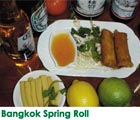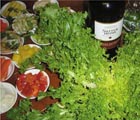
Tibetan Buddhism refers to Tibetan language Buddhism, and is also known as Lamaism.
Tibetan Buddhism has exerted extensive and profound influence on the Tibetan race. Buddhism spread into Tibet in the 7th century, and gradually infiltrate Tibet's history, politics, economics, culture, exchanges and habits and customs to become the most extensively worshipped religion of Tibetans. Prolonged ethnic cultural exchanges also enabled Tibetan Buddhism to make its way into the Mongolian, Tu , Yugu, Luoba, Moinba, Naxi, Purmi and other ethnic minority nationalitites throughout China. Buddhism has long been widely worshipped in China's Tibet Autonomous Region, as well as Sichuan, Yunnan, Gansu and Qinghai provinces, and the Xinjiang Uygur and Inner Mongolia autonomous regions. It has also made its way into Sikkim, Bhuttan, Nepal, the Mongolian People's Republic and Buryat in the Republic of Russia.
More than 1,400 Tibetan monasteries and other religious venues were renovated and opened following the peaceful liberation of Tibet in 1951. Chinese government and policies for religious freedom enable 34,000 monks in various monasteries to freely study Buddhist sutras and hold various types of Buddhist activities in their respective monasteries. In addition, the broad masses of religious have set up shrines, Buddha halls and sutra recitation rooms in their homes, and undertake pilgrimages to sacred sites.











.gif)
.gif)
.gif)
.gif)
.gif)
.gif)
.gif)
.gif)
.gif)
.gif)
.gif)
.gif)
.gif)
.gif)
.gif)
.gif)
.gif)
.gif)
.gif)
.gif)
.gif)
.gif)
.gif)
.gif)
.gif)
.gif)
.gif)
.gif)
.gif)
.gif)
.gif)
.gif)
.gif)
 PREVIOUS
PREVIOUS